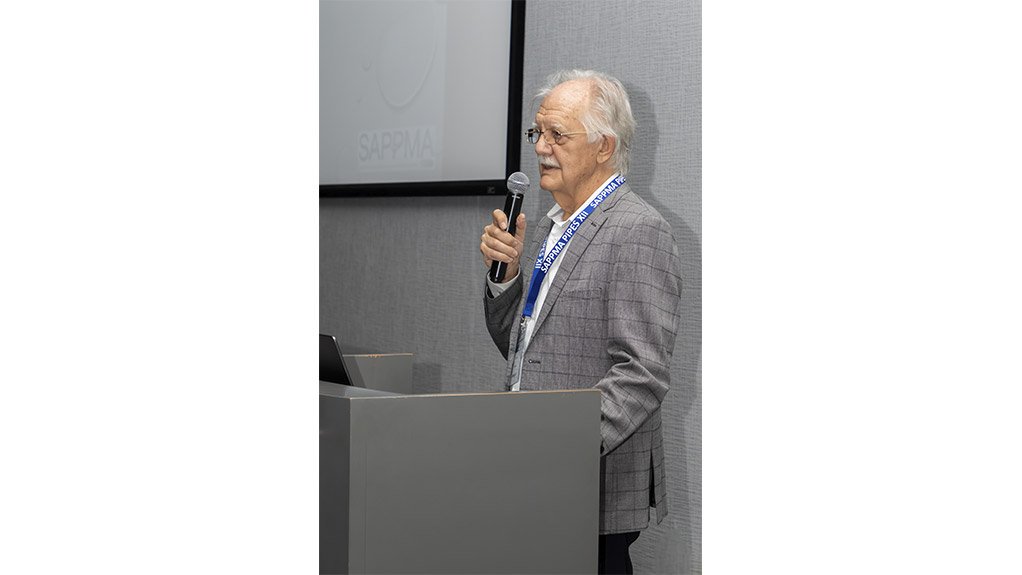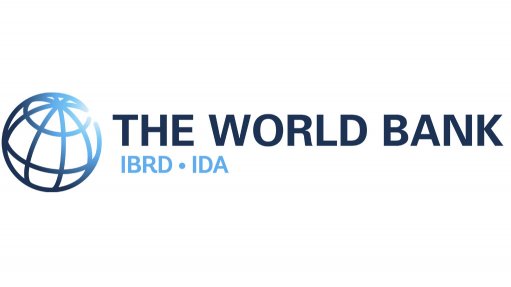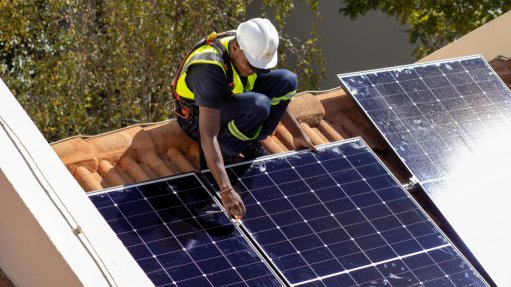SA fails to recognise urgent need for protecting water resources
This article has been supplied as a media statement and is not written by Creamer Media. It may be available only for a limited time on this website.
By: Jan Venter, Chief Executive Officer of SAPPMA
When blood stops flowing, the body dies. Similarly, when water stops flowing, a country “dies”. Everybody knows that water is essential to all forms of life, but not everybody shows respect or pays enough attention to this precious commodity. It is terrible to see the impact a lack of water has on animals, plants and our environment - not to mention on humans. It should be equally terrible to witness the callous waste and pollution of water.
With our average rainfall about half that of the world average, South Africa is a water-scarce country. It is estimated that the average amount of water available per person in South Africa is about 2 000 m3 - compared to 15 000 m3 in the USA. The withdrawal of fresh water from ground or surface water sources (as a percentage of available water) has increased from about 42% to roughly 64% in South Africa between the period 2000 and 2018. In comparison, the graphs of other African countries are flat (and below 40%):
Water resources are being polluted on a frightening scale. Below is an extract from a UN Report comparing the proportion of good quality, raw water available in a couple of African countries. Here again, South Africa results are cause for concern:
| South Africa | 52% |
| Botswana | 78% |
| Ethiopia | 97% |
| Zimbabwe | 83% |
| Kenya | 87% |
| Namibia | 79% |
In spite of these alarming facts, it is mind boggling that our country’s leaders and citizens seem to have a complete lack of urgency and motivation to rectify the situation. Hundreds of faulty municipal water and sewage plants can be found all over the country, while thousands of liters of water continue to be lost every day due to poorly maintained pipelines.
Plastic pipe is dominant in secondary water distribution and therefore a key factor in the country’s infrastructure. As the only major pipe association in South Africa, SAPPMA represents more than 80% of all certified plastic pipe produced in the country. Two of our main areas of focus are product standards and quality - both of which are indispensable in the bigger picture of ensuring water safety and security for every citizen and preserving our country’s water resources. SAPPMA is a voluntary, non-profit organisation which works not only for the well-being of the plastics pipe industry, but also for the welfare of the people of the country.
Without readily available, clean water, personal hygiene and health is not possible. Government (the Department of Water and Sanitation) is the custodian of water resources in the country and therefore responsible for the protection, development, conservation and proper management in a sustainable and equitable manner, for the benefit of all people and in accordance with it constitutional mandate. SAPPMA is therefore again making a the following urgent appeals to Government:
- To seriously address the widespread pollution of rivers, dams and wetlands
- To intervene in the mismanagement of municipal water and sewage treatment plants
- To de-politicise the management of water in the country and fully utilise all the available engineering skills in the country
In addition to the above, SAPPMA is also advocating for the saving of water with good quality plastic pipes that are durable, leak-free and properly installed. Corroding pipes and poor jointing are two of the major causes of water loss. For this reason, old steel or asbestos pipes around the world are being replaced with plastic pipes that do not rust and have leak-proof joints (if done correctly).
A great deal of municipal pipe networks are beyond their useful life and should have already been replaced. The consequence of failing to do so, is the substantial loss of precious, treated water in most municipal areas. This is clearly something that the country cannot afford. The benefits of using plastic pipe as opposed to other materials have been well documented and tested. Apart from having a lifetime that is more than double of that of other materials, plastic pipes are also quicker and easier to install, have lower failure rates, less corrosion, fewer joint leaks and are lower in price compared to the other pipes.
Without delay municipalities should spend the money allocated in their budgets to upgrade and replace old and failing water infrastructure. This will place us in the position to save enough purified water to significantly reduce the impact and long-term effects of the below average rainfall and avoid the threat of “water shedding” in the months to come.
Comments
Press Office
Announcements
What's On
Subscribe to improve your user experience...
Option 1 (equivalent of R125 a month):
Receive a weekly copy of Creamer Media's Engineering News & Mining Weekly magazine
(print copy for those in South Africa and e-magazine for those outside of South Africa)
Receive daily email newsletters
Access to full search results
Access archive of magazine back copies
Access to Projects in Progress
Access to ONE Research Report of your choice in PDF format
Option 2 (equivalent of R375 a month):
All benefits from Option 1
PLUS
Access to Creamer Media's Research Channel Africa for ALL Research Reports, in PDF format, on various industrial and mining sectors
including Electricity; Water; Energy Transition; Hydrogen; Roads, Rail and Ports; Coal; Gold; Platinum; Battery Metals; etc.
Already a subscriber?
Forgotten your password?
Receive weekly copy of Creamer Media's Engineering News & Mining Weekly magazine (print copy for those in South Africa and e-magazine for those outside of South Africa)
➕
Recieve daily email newsletters
➕
Access to full search results
➕
Access archive of magazine back copies
➕
Access to Projects in Progress
➕
Access to ONE Research Report of your choice in PDF format
RESEARCH CHANNEL AFRICA
R4500 (equivalent of R375 a month)
SUBSCRIBEAll benefits from Option 1
➕
Access to Creamer Media's Research Channel Africa for ALL Research Reports on various industrial and mining sectors, in PDF format, including on:
Electricity
➕
Water
➕
Energy Transition
➕
Hydrogen
➕
Roads, Rail and Ports
➕
Coal
➕
Gold
➕
Platinum
➕
Battery Metals
➕
etc.
Receive all benefits from Option 1 or Option 2 delivered to numerous people at your company
➕
Multiple User names and Passwords for simultaneous log-ins
➕
Intranet integration access to all in your organisation





















